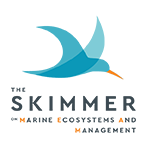


Latest News and Resources for Ocean Planners and Managers
New hubs provide information on human uses of oceans and marine cultural ecosystem services Ocean heat hit record high in 2018 Ocean warming already reducing sustainable fisheries catches Implementing Paris Agreement could save billions of dollars in fishing losses...
US offshore wind under the Trump administration and new developments with offshore wind
Editor’s note: In this interview, Val Stori, the project director for the Clean Energy Group and Clean Energy States Alliance, discusses US offshore wind energy under the Trump administration and new developments in the offshore wind industry. She can be...
Perspective: The growing importance of regional oceans cooperation
By Alf Håkon Hoel Editor’s note: Alf Håkon Hoel is a professor at UiT – the Arctic University of Norway. He can be contacted at alf.hakon.hoel@uit.no. A valuable development in international oceans governance is the growing importance of...
All things to all people: What different groups mean when they talk about the Blue Economy
Editor’s note: The term on everyone’s lips (and documents) these days is Blue Economy. In this issue, The Skimmer takes a look at what various groups mean when they use this term, how it came about, what it looks like in practice or could look like in practice, and why it has some people worried. We’d love to hear your thoughts and experiences about the Blue Economy in the Comments section below.
So what in the world is the ‘Blue Economy’?
- It really depends on whom you ask. The term Blue Economy means a lot of different things to a lot of different groups. For example, the World Bank defines the Blue Economy as the “sustainable use of ocean resources for economic growth, improved livelihoods, and jobs while preserving the health of ocean ecosystem.” In contrast, a recent European Commission document defines it as “all economic activities related to oceans, seas and coasts.”
- A 2015 article by Silver et al. analyzed preparatory documents for and discussions of the Blue Economy at the 2012 UN conference on Sustainable Development (aka Rio+20) and described four general ways that groups were conceptualizing what the Blue Economy is. Voyer et al. 2018 reviewed newer documents and updated those initial conceptualizations of the Blue Economy to the following:
- Oceans as natural capital: This use of Blue Economy is used to express the importance and value of marine ecosystem services. It is used primarily by environmental organizations and is used to promote the societal and economic benefits (e.g., ecotourism opportunities, carbon markets, payments for ecosystem services) of environmental protection and restoration activities. Such activities include the creation of marine protected areas, decarbonization, and climate change mitigation. This conceptualization promotes protection of species and ecosystems as a driver of economic development rather than a competing priority and is the least common conceptualization of Blue Economy of the four.
